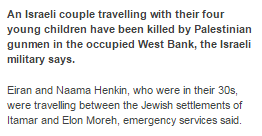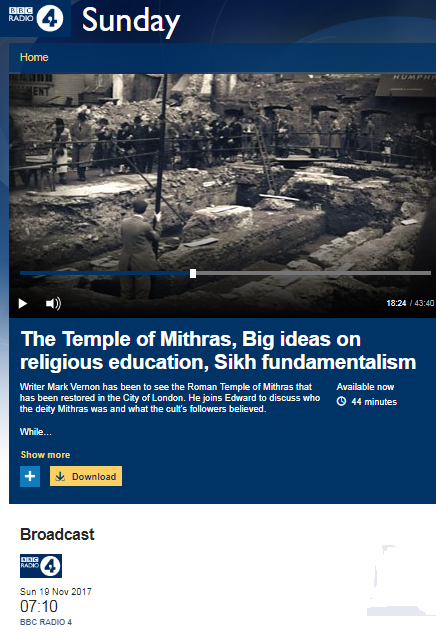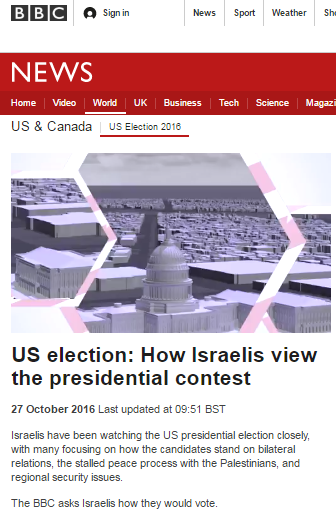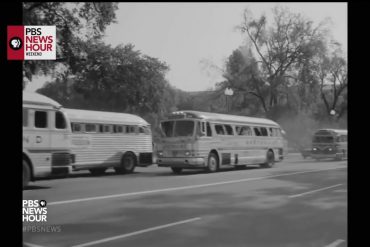Last week marked ten years since elections for the Palestinian Legislative Council were held and the resulting split between Hamas and Fatah began. The BBC did not produce any content relating to that anniversary, the subsequent decade long Palestinian political paralysis and its effects upon an issue much touted on BBC pages and airwaves – the peace process.
Writing at Newsweek, Jonathan Schanzer of the FDD outlines the contemporary significance of that ten year-old event.
“Ten years on, the intra-Palestinian conflict is a glaring blind spot among Western policymakers. The enmity between the two factions challenges longstanding assertions of a unified Palestinian national identity. The Palestinian battle for primacy also injects new complexities into the Palestinian-Israeli conflict. The conflict, in fact, is now a three-way tug-of-war between Israel, the West Bank, and Gaza, where any one move can impact the delicate balance between the three.
After a decade of failed reconciliation efforts and a collapsed unity government in 2015, the intra-Palestinian conflict now appears intractable. The Gaza Strip remains firmly in the hands of Hamas, while the Fatah faction clings to the West Bank with the help of Israeli security and intelligence. There are two separate Palestinian governments with their own bureaucracies, two sets of cadres of political elites, two distinct economies, and increasingly two different cultures.
Nevertheless, Washington continues to call for a single Palestinian state. It’s a call that echoes across most Western capitals, too. The overriding assumption is that deft diplomacy coupled with Israeli territorial concessions could pave the way for the Palestinian Authority, unpopular and corrupt as it may be, to regain the moral and military high ground from Hamas and somehow bring the Gaza Strip back under its jurisdiction. These plans remain vague, to say the least. […]
The near collapse of the post-colonial system since the Arab Spring has challenged almost all of our assumptions on how to bring order to the chaos of the Middle East. Yet, the perceived need to create a single Palestinian state spanning the West Bank and Gaza has endured. Ten years on, the Palestinians are still divided—both ideologically and territorially. It may be time to acknowledge that if they can’t peacefully resolve their own territorial conflict, they certainly are not likely to resolve the one with Israel.”
What the BBC did see fit to publish last week, however, was an article titled “Israel-Palestinian conflict: Is one homeland the solution?” which was promoted in the ‘features’ section of its website’s Middle East page for four consecutive days.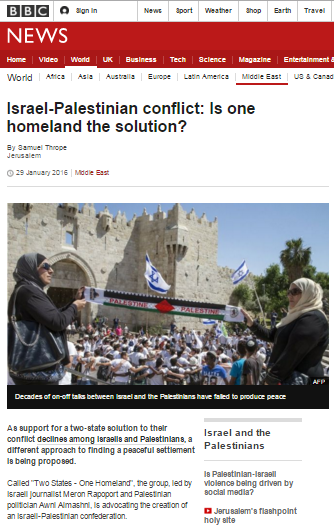
“As support for a two-state solution to their conflict declines among Israelis and Palestinians, a different approach to finding a peaceful settlement is being proposed.
Called “Two States – One Homeland”, the group, led by Israeli journalist Meron Rapoport and Palestinian politician Awni Almashni, is advocating the creation of an Israeli-Palestinian confederation.
They say that their plan, now picking up public and official backing, can solve the difficult issues – Israeli settlements, the right of return for Palestinian refugees, and the fate of Jerusalem – that have scuttled past negotiations.”
The article’s over-enthusiastic portrayal of the supposed popularity of a scheme few in the region will have heard of includes only minimal coverage of opposition from “the Palestinian street” whilst totally ignoring the Hamas elephant in the room.
“The group has also encountered opposition. Its inaugural public conference last June was moved from the Palestinian city of Beit Jala to nearby Jerusalem after Palestinian supporters of the Boycott, Divestment and Sanctions movement threatened to disrupt the gathering.”
The article also fails to clarify to readers that – at least according to an article written by Mr Almashni – the plan is merely a stepping stone on the route to something other than “two states”.
“A quick glance at these ideas shows that they meet all the demands of anyone who believes in the two-state solution – taking into account that the two states are fully independent and sovereign, and within in the 1967 borders. Nevertheless, maintaining freedom of crossing, movement, and residence – that is, an open border between the two states – leaves the door ajar for a single future [binational] state, once the trust and the relationship [between the two peoples] have developed.” […]
“Ultimately, this solution reflects the desire of all who support the traditional two-state solution – it includes all the principles of the two states, as well as the actualization of the right of return. It [also] constitutes a giant step towards a single state, if the two peoples want to reach it – because it strengthens what they share, and thus opens the way to this direction.” [emphasis added]
Not content with failing to present its subject matter accurately, the writer of the article, Samuel Thrope, also misrepresents other related subjects.
“The settlements are considered illegal under international law, though Israel disputes this. UN General Assembly resolutions, meanwhile, endorse a Palestinian right of return.”
Regular consumers of BBC content are of course used to seeing the BBC frequently fail to meet its own editorial guidelines on impartiality by refraining from informing them of the existence of legal opinions which contradict its own adopted political stance on “the settlements”.
Now we see a new addition to the BBC’s repertoire of politically partisan messaging; promotion of the inaccurate claim that “a Palestinian right of return” is endorsed by the 1948 UN GA resolution 194 – which was opposed by Arab states at the time and in fact includes one clause pertaining to refugees in general but does not include the word “Palestinian” or guarantee an unconditional ‘right of return’.
As long as BBC reports continue to include unqualified promotion of Palestinian talking points, the corporation should not of course be surprised that its impartiality is so frequently called into question.
Related Articles:

